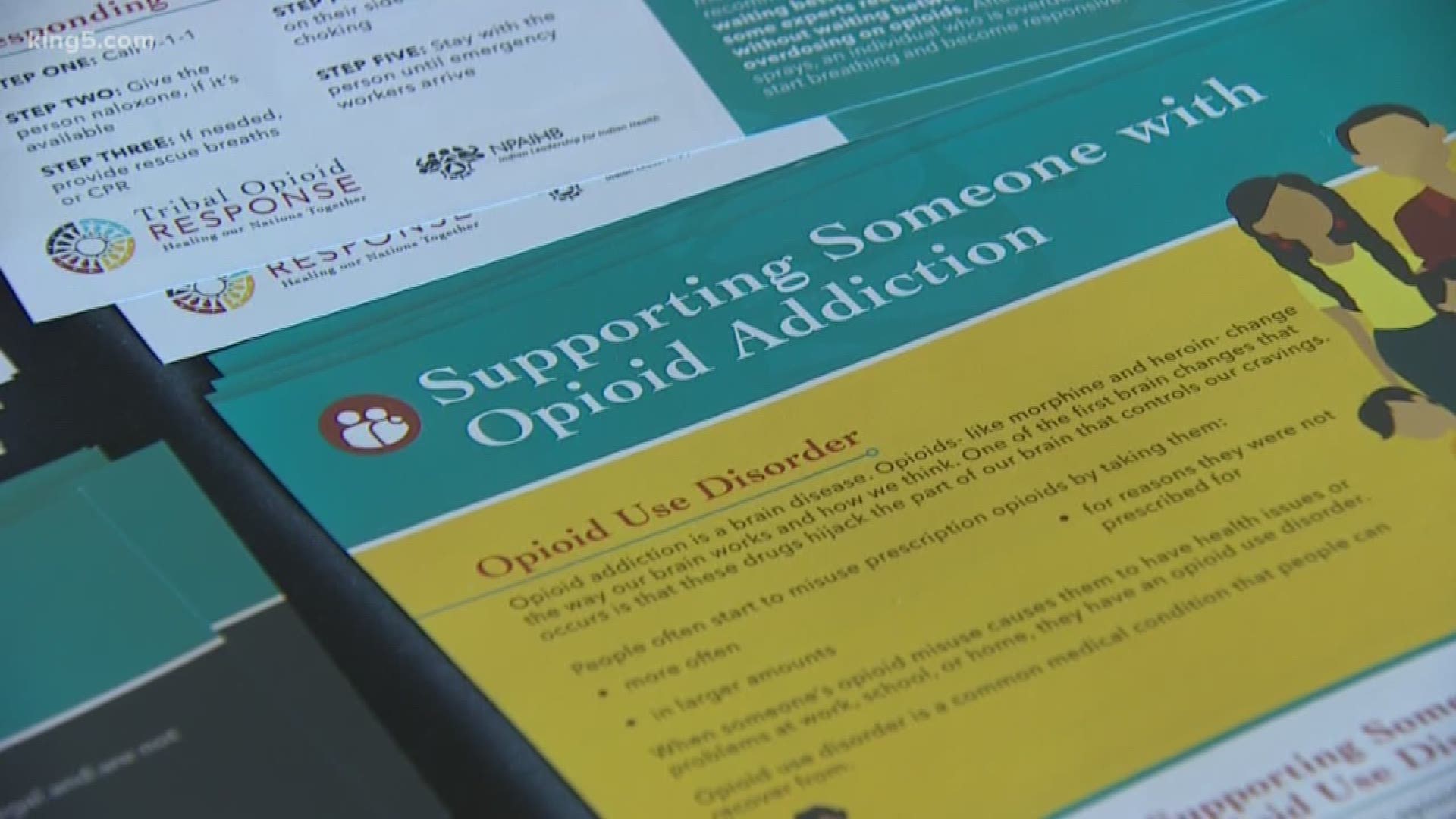SKAGIT COUNTY, Wash. — Greeted by the beat of a drum and a song of blessing, tribal members from as far away as Oklahoma came to the Swinomish reservation Wednesday looking for answers.
The tribe hosted a symposium focused on solutions to the opioid epidemic that is ravaging communities all across the country.
"We are providing a model that is working and we are willing to share," said John Stephens, CEO of the Didgwalic Wellness Center.
The center is a first of its kind facility that offers everything from drug treatment and mental health counseling to child care, employment assistance, and transportation services all under one roof. By streamlining the system, patients can access services more easily and continue their path to sobriety more smoothly.
Since it opened in 2017, the fatal overdose rate on the reservation has been cut in half.
Right now, tribes in three states are following the Swinomish model and hundreds more are asking for assistance.
The center proved so popular it’s now expanding to serve people both on and off the reservation, doubling its daily capacity to 500.
But the harsh reality is most of those treated at the center have ended up coming right back.
RELATED: Snohomish County changing how it provides overdose-reversing drug Narcan to law enforcement
"Relapse is part of recovery," said Stephens, "but the greatest issue is with people being able to stay clean is the lack of stable, safe, secure housing. That was the common issue for every person who dropped out of the program."
With that in mind, the tribe is now planning to build an affordable housing complex for people enrolled in treatment. It would be located on seven acres along Highway 20, right next door to the wellness center. Most of the details are still being worked out, but the tribe would like to house at least 100 people.
"This is not a homeless shelter," said Stephens. "This is for people currently undergoing treatment at Didgwalic. These are people with a medical condition. We need to end that stigma of addiction."
More than half of the 229 people currently in treatment at the center are homeless. Without the new facility, Stephens knows most will just continue the cycle of addiction.
"This is about saving lives," he said. "We’re helping people in the program get back to being normal citizens."

